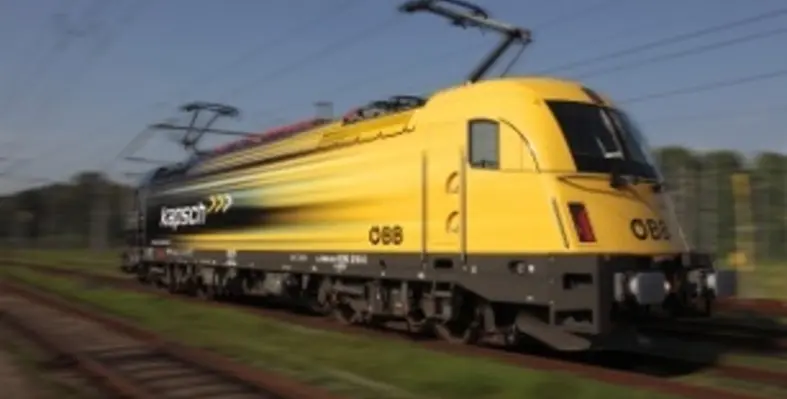Michel Clement, VP Railways at Kapsch CarrierCom, discussed the challenges and opportunities of bringing GSM-R railway technology to Algeria, the first country in the region to implement digital train communication.
The rapid expansion of railway projects across the MENA region has not just seen thousands of kilometres of tracks being laid down in Algeria, Saudi Arabia and Oman, but also the implementation of the latest communication technology, enabling the railway networks to run more safely and efficiently.
GSM-R technology
Kapsch CarrierCom completed the acquisition of Nortel's GSM business in April 2010 which effectively gave Kapsch access to Nortel's GSM-R (Global System for Mobile Communications-Railway) business globally.
"It is important to understand that Kapsch is now the owner of the whole GSM-R product portfolio, which allows us to pursue and continue to evolve our technology," said Michael Clement, VP Railways, in an interview with Technical Review.
The acquisition enabled Kapsch to capture key customers, such as Network Rail in the UK, Deutsche Bahn in Germany and RFF in France.
Algeria, a critical customer
The 1,759 km track in Algeria, where the company is implementing GSM-R end-to-end solutions, forms the company's first foray into the MENA region.
"We are the first company to work on a project for new signalling and telecommunication activity in Africa. Algeria presents a critical customer for us and the dimension of the project is as big as the one in France. We are providing Algeria with the most up-to-date technology," said Clement.
"IP for the core and based on our BTS 9K and 6K. We are also able to provide GPRS."
Clement added that the system is being implemented by ANESRIF, before going on to discuss the various challenges of bringing this technology to the Middle East for the very first time.
Extreme environmental challenges
"Algeria was our first experience in a very difficult environment with high temperatures and vast desert areas. It was interesting for us to do that and also very educative," he said.
"The interesting thing is that normally we introduce GSM-R where there is a high concentration of people, but in Algeria we had to implement GSM-R around the entire track. In a lot of cases this is in areas that are unpopulated and do not have any kind of infrastructure."
"Kapsch is actually the first company worldwide which has realised such a project under such harsh environmental circumstances. We are becoming specialists for extreme environmental challenges. Here in North Africa temperatures can reach up to 58 degrees."
Kapsch CarrierCom carried out the first ever GSM-R call in Africa at the end of last year, a considerable achievement for the company. The call was made by the Minister of Communications between Algiers and Bechar, in the south of the country.
Focus across the region
Kapsch CarrierCom's focus extends across the region. The company is involved in all tenders for Etihad Railway, has been involved in Saudi Arabia since the start (as Nortel), has ongoing tenders in Morocco and is in advanced discussions with Egypt.
The company also opened an office in Abu Dhabi recently and sees high potential in Libya and Tunisia. "We are now present in this area as we are convinced of the great potential in this region," said Clement.
"We are involved in interesting conversations with Saudi Arabia, Qatar and Oman, who have decided to go for the GSM-R standard and who show genuine interest in implementing state-of-the-art technology. In North Africa, the decision on the technology has already been made. It was decided it would be GSM-R."
A major year for railway projects
Clement pointed out that an important aspect of the regional railway boom is that various projects are starting from scratch. Employing wireless technology is a smart and more cost effective move. In contrast to Europe, where the market has evolved slowly over time, the Middle East presents the opportunity to employ the latest technology immediately, without going through periods of trial and error.
Clement said that the outlook for railway projects this year is bright. "2012 will be a major year for projects to be started," he said. "In North Africa and the Gulf countries, these projects are identified and are on their way."








